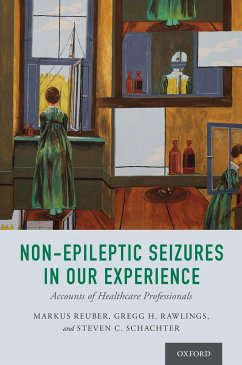To an outside observer, Psychogenic Non-Epileptic Seizures (PNES) look like epileptic seizures. The manifestations of PNES include collapses, impaired consciousness, and seizure-related injuries. However, unlike epileptic seizures, which are the result of abnormal electrical discharges in the brain, most PNES are an automatic psychological response to a trigger perceived as threatening. Not least because the changes in the brain that underpin PNES cannot be visualised easily with clinical tests (such as the EEG), there are many uncertainties and controversies surrounding the condition. Patients often provoke a mixture of emotions in healthcare professionals. In the authors' previous book,
In Our Words: Personal Accounts of Living with Non-Epileptic Seizures, over 100 individuals with PNES and their family wrote about their experiences with the condition. While some had positive care experiences, many were left feeling confused, angry, and abandoned by the clinicians they had encountered.
Non-Epileptic Seizures in Our Experience: Accounts of Health Care Professionals complements the authors' previous book by presenting the perspectives of over 90 members of different healthcare professions from around the world. The anonymous publication format has enabled many not only to share success stories but also to be open about difficulties and failures. This volume will be an invaluable resource for both highly experienced professionals as well as relative novice and those experiencing PNES. This book will challenge negative attitudes surrounding the condition, improve understanding between healthcare professionals and patients, and - ultimately - advance the quality of care provided for those with PNES.
Dieser Download kann aus rechtlichen Gründen nur mit Rechnungsadresse in A, B, BG, CY, CZ, D, DK, EW, E, FIN, F, GR, HR, H, IRL, I, LT, L, LR, M, NL, PL, P, R, S, SLO, SK ausgeliefert werden.









